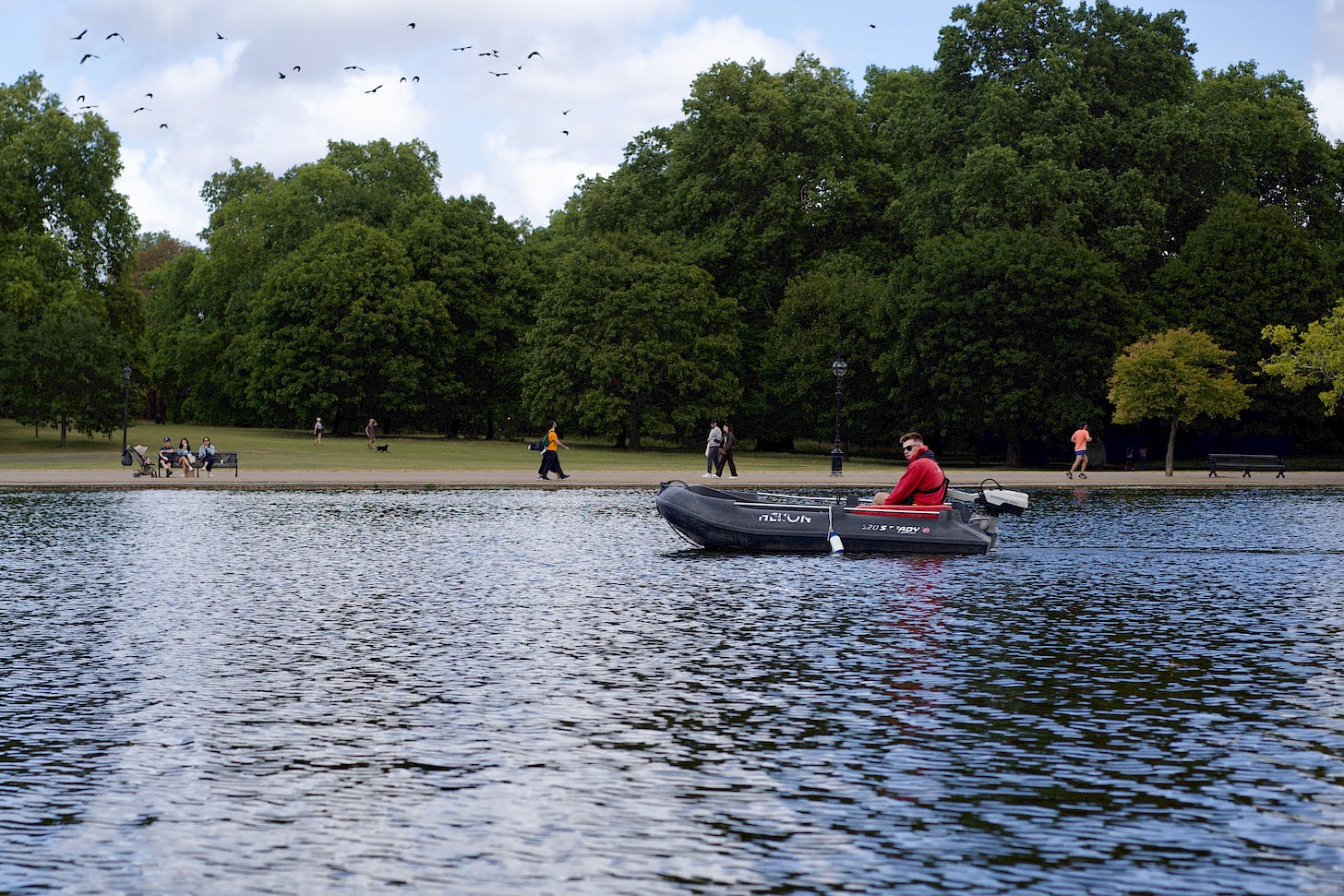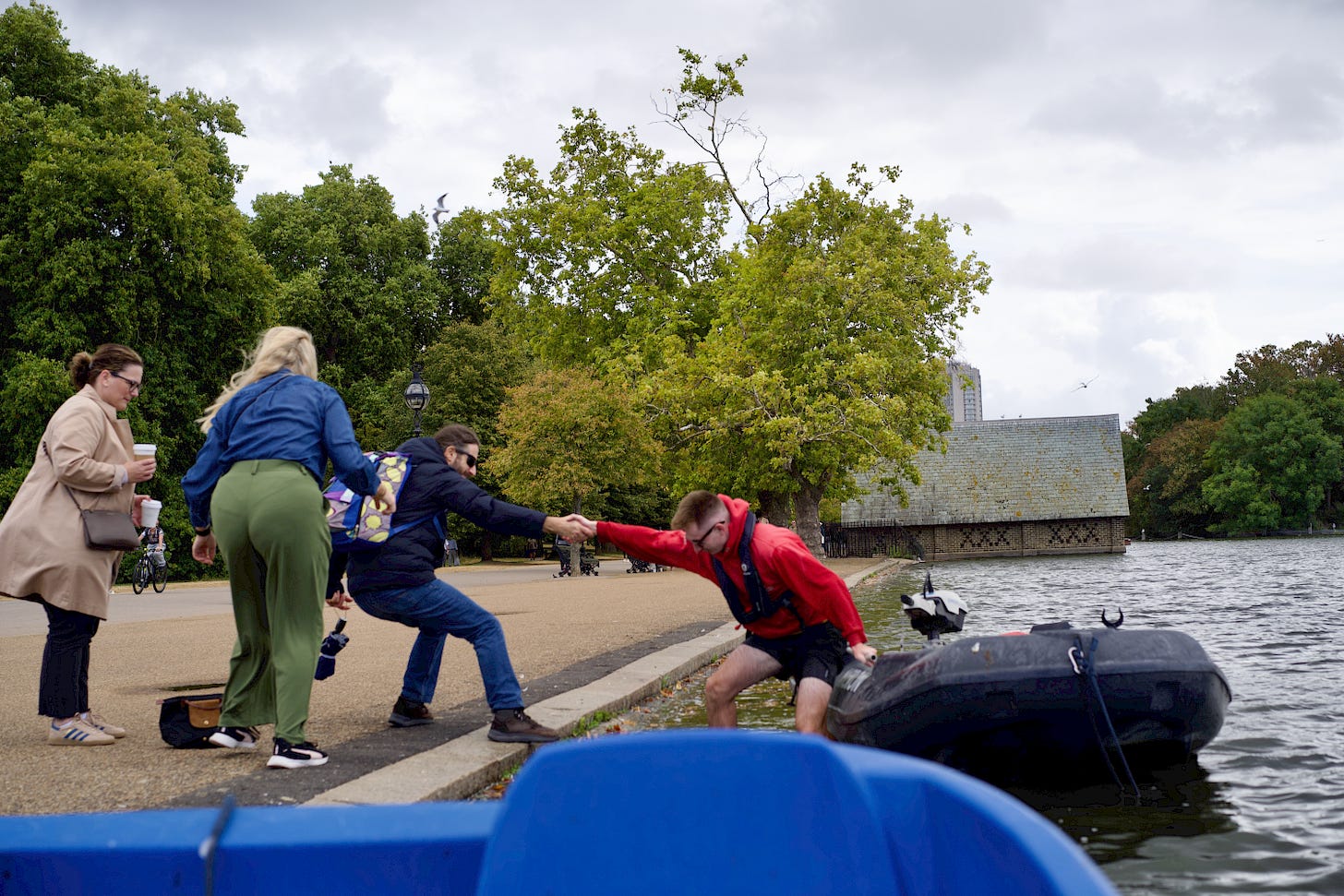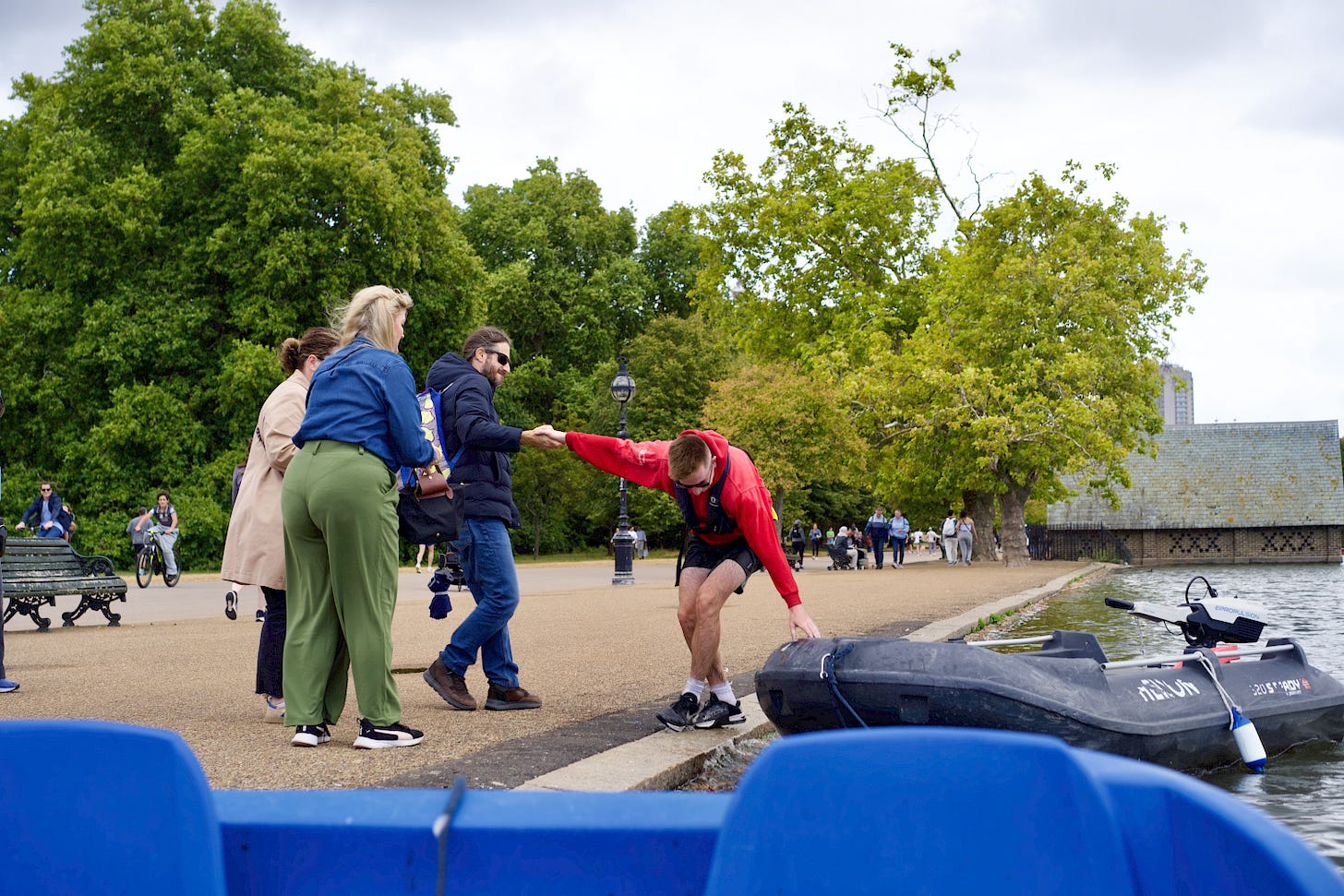The Art of the Self-Rescue
A Splash of London: Hyde Park Boating Misadventure
After days of London attractions, museums, markets, and misty rain, Day 8 slowed into a gentler rhythm. Hyde Park’s Serpentine Lake was waiting for us.
The grandkids, of course, were thrilled at the idea of being the captains of their own tiny navy. Their parents rented two pedal boats — they and the kids jumped into one with excitement, while my wife and I settled into another.
At the start, we pedaled side by side, parallel across the lake, almost like two trains on matching tracks. Soon — as expected — their boat surged ahead, powered by the eager feet of youth. Ours lagged, and then fell behind.
By the time they reached near the Serpentine Bridge, they were entirely on their own — steering, pedaling, laughing — learning, in miniature, what independence feels like.
Our boat, on the other hand, slowed until the wind claimed us. We drifted toward the center of the lake, suspended between control and surrender.
We let it be.
From there, I noticed the lifeguard — wearing a red life jacket in his sleek motorboat — sitting calmly, watching.
What a job, I thought. Just float. Monitor the situation, if any. Enjoy the breeze.
No stress. No deadlines. No bosses.
The easiest job in the world — boring, but relaxing.
As my daydream spun, reality corrected me.
The wind shifted, nudging our pedal boat toward the shoreline.
We tried pedaling harder, but the current ignored us.
Feet pushing those clunky pedals, we got nowhere.
The boat stubbornly inched closer to land.
Without meaning to, we had become the situation.
The lifeguard responded instantly, steering his motorboat toward us with admirable skill. His approach was smooth, practiced. Just before reaching us — three feet from shore — he made a surprising move: he jumped out, aiming to pull us free from the land side.
It looked almost heroic.
But the lake had other plans.
His first step landed on something hidden beneath the shallow water; He slipped, nearly falling — yet recovered majestically, pretending all was under control.
He tried again, wading closer with determination; Then came the second betrayal: his foot hit a slick patch. This time he plunged down to his knees, water splashing around, forced to brace both hands in the water just to stay upright.
The rescuer had become the rescued.
Another rescue boat appeared suddenly, and people onshore rushed forward to help.
Together they pulled him back, dripping and humbled.
Meanwhile, we had been watching this performance unfold — half guilty (by taking those rescue pictures…), half amused.
We gave the pedals another try.
By working backwards, adjusting the steering bar, and coordinating better, our boat began to respond.
Slowly, we moved off the shoreline’s grip and regained freedom.
We had, in the end, rescued ourselves.
Reflection: The Art of the Self-Rescue
This day on the Serpentine was more than just a pedal-boat outing. It became a mirror.
The children pushed forward on their own, embracing independence.
The lifeguard — whom I once envied for his simplicity — reminded me that even the “easiest job in the world” carries hidden risks and humbling moments.
And we? We learned something deeper still.
We were being rescued, yes —
but also rewiring the logic of help.
“Sometimes help arrives dripping wet and humbled. Sometimes it’s in the quiet synchronization of two tired legs pedaling again — not for speed, but for direction.”
In truth, I’ve spent most of my life pedaling hard — for career, for family, for survival.
Perhaps now I’m learning that momentum isn't everything.
Sometimes presence is the boldest stroke.
It was, in the end, comic, ironic, and quietly profound — a floating family parable about drift, duty, rescue, and recovery.
And maybe the boldest part of it all?
Not panicking.
Not rushing.
Just pausing. Listening.
Letting stillness suggest something new.
Sometimes we drift not because we’ve failed — but because we’ve finally stopped fighting the wrong current.
With deep gratitude,
Kefei, Koffeemocha in London




